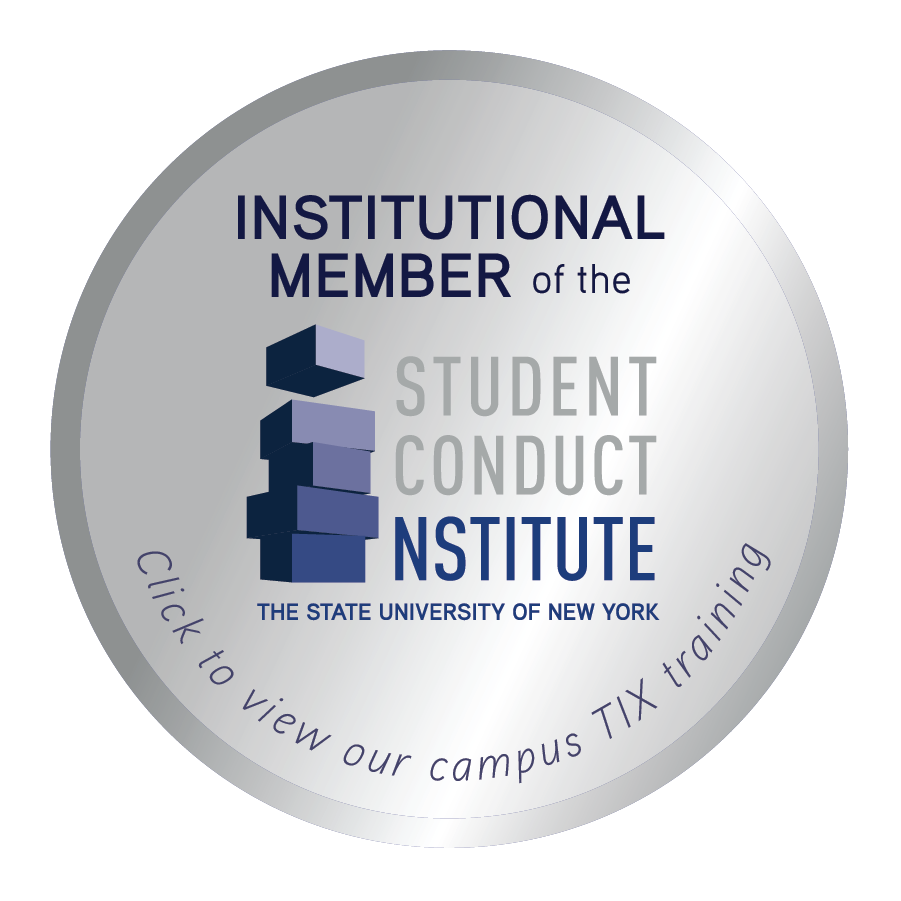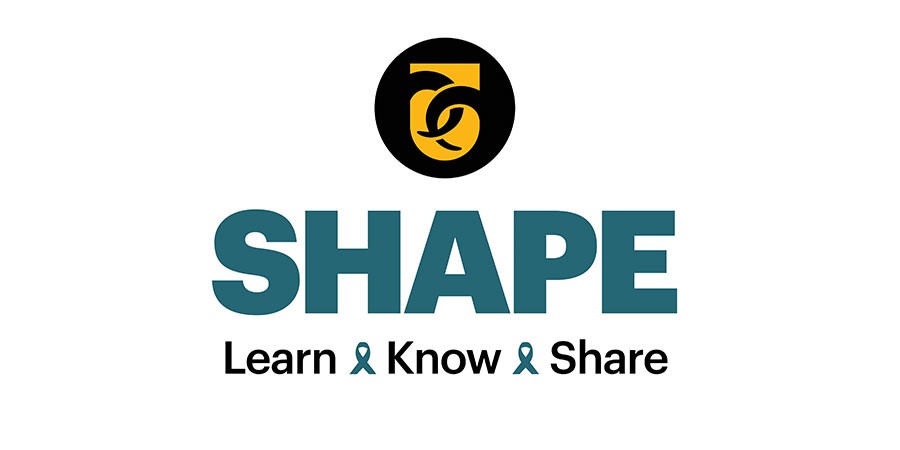The University has outlined its policies and procedures regarding sexual assault, sex-based harassment, gender-based harassment, domestic and dating violence, and stalking in the Equal Opportunity, Nondiscrimination, and Title IX Plan. This document was developed and is shared by the nine State Universities.
Equal Opportunity, Nondiscrimination, and Title IX Plan ("EO Plan")
The primary purpose of the EO Plan is to inform the campus communities of:
- the University’s prohibition of discrimination and discriminatory harassment, including sex-based harassment and sexual misconduct, including sexual assault, domestic violence, dating violence, stalking, and retaliation;
- the University’s efforts to prevent such behaviors; and
- the manner in which the University will respond to such behaviors, including the prompt, impartial, fair, and thorough investigation and resolution of complaints.
Title IX Sexual Harassment Policy
Following a judicial order to vacate the 2024 Title IX Final Rule nationwide, the Massachusetts State Universities have reinstated this Title IX Sexual Harassment Policy, effective January 9, 2025, for behaviors defined as sexual harassment under the 2020 Title IX Final Rule and as so defined in this Policy.
The Equal Opportunity, Nondiscrimination, and Title IX Plan (“EO Plan”), effective date August 1, 2024, currently remains in effect. However, for conduct defined as sexual harassment under the 2020 Title IX Final Rule, as outlined in the Title IX Sexual Harassment Policy, the University will rely on the definitions and procedures in the Title IX Sexual Harassment Policy where they otherwise conflict with the current EO Plan.
The Student Code of Conduct establishes the rules and regulations all students of Framingham State University are expected to follow. They are made in any exercise of the powers that are an inherent corollary of the University's duty to protect its educational purposes by setting and distributing standards of student conduct and scholarship, and by regulating the use of University facilities. Students have a right to expect enforcement of these rules and regulations. The University also has the right to expect students to abide by these regulations in a manner that benefits the responsibilities given to students as members of the University community. Knowledge of these rules and regulations can prove most beneficial to students in utilizing and protecting their rights.
Policy Regarding Domestic Violence Leave
"An Act Relative to Domestic Violence" provides employees with up to 15 days of leave annually if the employee, or a covered family member of the employee, is a victim of abusive behavior. In response, the University developed the Policy Regarding Domestic Violence Leave that provides more detailed information about employees’ entitlement to this leave.
Public Records Exemption
Under MA public records law, an employee's name, title, salary, and department are considered public information and FSU is required to provide that information upon request. Exemptions to this requirement exist for employees who are victims of adjudicated crimes or victims of domestic violence, sexual assault, or rape. Family members of victims who also work for the state may also receive an exemption. The Payroll Public Records Exemption Form should be submitted directly to the University Title IX Coordinator in the Human Resources Office located in Dwight Hall suite 207.
Payroll Public Records Exemption Form
Retaliation
The university prohibits adverse employment or educational action against any person making a complaint of discrimination, sexual assault, sexual harassment, gender-based harassment, domestic violence, dating violence, stalking and retaliation, assisting in making a complaint, resisting or openly opposing such conduct, or otherwise using or participating in the complaint investigation process under the Policy. Persons who file, or participate in the investigation or resolution of, claims or complaints of sexual assault, sexual harassment, gender-based harassment, domestic violence, dating violence, stalking and retaliation with outside agencies, law enforcement or otherwise pursuant to any applicable state or federal law, are also protected from retaliation.
Prohibited retaliation includes, but is not limited to: threats; intimidation; reprisals; continued harassment or misconduct; other forms of harassment; slander and libel; and adverse actions related to employment or education.
Retaliation can be committed by individuals or groups, including friends, relatives or other associates of the person against whom a complaint is filed. Retaliation, even in the absence of proven discrimination, sexual violence, sexual harassment, gender-based harassment, domestic violence, dating violence or stalking in an underlying complaint, constitutes a policy violation that is just as serious as the main offense itself.
Retaliation is prohibited under University Policy.
Title IX of the Education Amendments of 1972 is a federal law that prohibits sex discrimination in education. It reads, “No person in the United States shall, on the basis of sex, be excluded from participation in, be denied the benefits of, or be subjected to discrimination under any education program or activity receiving Federal financial assistance.”
Consistent with its commitment to non-discrimination, the University does not discriminate on the basis of sex in the education program or activity that they operate, and are required by Title IX of the Education Amendments of 1972 (“Title IX”) to not discriminate in such a manner. The requirement not to discriminate in the education program or activity extends to admission and employment. Inquiries about the application of Title IX to the University may be referred to FSU's Title IX Coordinator, to the Assistant Secretary of the Office for Civil Rights, or both.
The University has designated Title IX Coordinators who have primary responsibility for Title IX compliance and with whom complaints of sexual harassment, sexual assault, domestic violence, dating violence, and stalking may be filed.
University Title IX Coordinator
Erin Jerrett
Director of Equal Opportunity/University Title IX Coordinator
Dwight Hall, 207
508-626-4052
titleix [at] framingham.edu (titleix[at]framingham[dot]edu )
Title IX Coordinator for Students
Dr. Meg Nowak Borrego
Dean of Students
McCarthy Center, suite 504
508-626-4596
titleixstudent [at] framingham.edu
Deputy Title IX Coordinator
Jay Hurtubise
Assistant Dean of Students/ Deputy Title IX Coordinator for Students
McCarthy Center, suite 504
508-626-4596
Title IX Coordinator for Athletics
Carey Eggen
Deputy Director of Athletics and Senior Woman Administrator
Athletic Center, Second Floor
508-626-4565
titleixathletics [at] framingham.edu (titleixathletics[at]framingham[dot]edu)
As required by M.G.L. c. 6, § 168D (e), Framingham State University conducts Sexual Misconduct Surveys at least once every four years and publicly posts the survey findings.
Publicly Available Training Materials for Title IX Process Facilitators

Section 106.45(b) of the 2020 Final Title IX Rules requires the sharing of “All materials used to train Title IX Coordinators, investigators, decision-makers, and any person who facilitates an informal resolution process. A recipient must make these training materials publicly available on its website."
FSU is an institutional member of the Student Conduct Institute (SCI) and our Title IX process facilitators receive required Title IX training through SCI. FSU complies with the directive to provide public access to these training materials by linking to the SCI Posted Training website that has been designed for this purpose.

